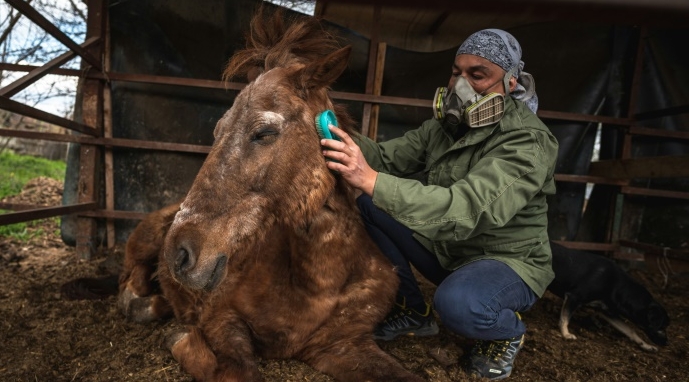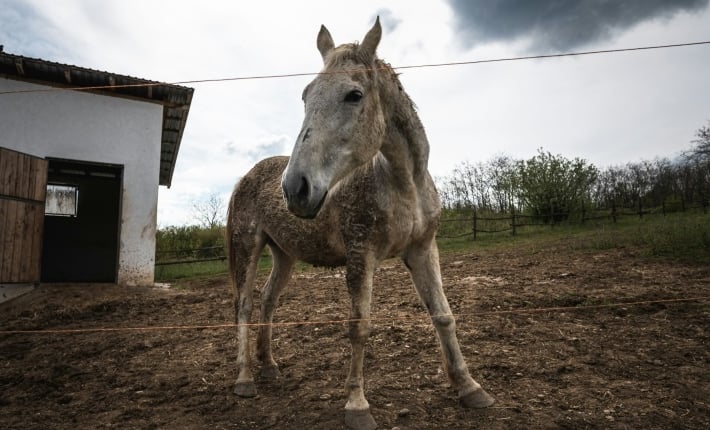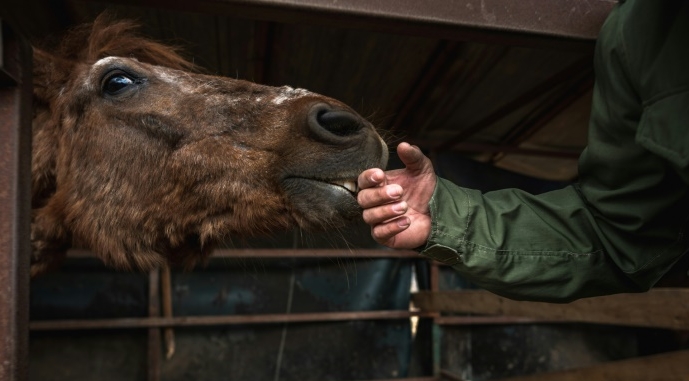
By Miodrag SOVILJ
LAPOVO, Serbia (AFP) — Pasha was once a mighty stallion who starred in movies, modelled for magazines and won carriage races. Now, the 24-year-old is spending his dotage in Serbia's only sanctuary for horses.
The former champ — a lightly dappled greyish white Lipizzan — struggles to walk these days but still keeps up with his nine stable-mates at the Staro Brdo shelter in central Serbia.
The sight of malnourished horses, harnessed and whipped while dragging carts, is common in Serbia — something that Zeljko Ilicic felt he had seen enough of.
"At one point, I decided to do something about that, even if it means rescuing only a single horse," he told AFP. "Better one than none."
Despite suffering from an allergy to horse hair, the 40-year-old, who makes bows and arrows for a living and runs children's nature workshops, officially registered the asylum in 2015.
Since then, his sanctuary near the town of Lapovo, 100 kilometres (60 miles) south of the capital Belgrade, has rescued about 70 animals.

Neither workhorse nor pet
Ilicic says irresponsible owners are his main concern.
They do not necessarily abuse the animals physically, but keep them inactive inside barns or shackled outside on short leashes.
"Horses in Serbia are in a difficult situation — they are no longer 'work machines' that owners tend to because they survive off them, nor are they pets that rich families ride and take care of like they do in the West," he said.
Ilicic estimates that "at least half" of the horses in Serbia are not kept in decent conditions.
In Belgrade alone, he guesses that some 150 horses live through daily abuse. And later in their lives, the animals are most often sold to slaughterhouses.
"Most horse owners swear that they love them… but when something happens financially in their family, selling the horse for 200-300 euros is the easiest solution," Ilicic said.
And sometimes the financial interests can be even bigger.
Last year, some 19 tortured and exhausted horses arrived after being seized by police investigating an international animal smuggling ring.
The sanctuary managed to find a suitable home for most of them.

'Sanctuary is my life'
Although many of the animals are quickly adopted, looking after them is still an expensive pastime.
Ilicic relies on donations — whether from wealthy individuals, benevolent artists or even enterprising children selling lemonade — and the enthusiasm of his volunteers.
"I came here in 2016. Little by little, I started spending more and more time here, and ended up moving in," says 33-year-old Violeta Jovic.
"So now, the sanctuary is my life."
Along with the horses, the sanctuary has hosted abandoned donkeys, stray dogs and cats, a litter of piglets and even a water buffalo.
"We are a horse sanctuary, but believe that someone who loves animals can't simply love one animal and completely disregard another," Ilicic said.
"We never turned our backs to a single animal."
ADVERTISEMENT
ADVERTISEMENT


































